How the Fairfield Lake developer fought the state of Texas on eminent domain — and won
Most eminent domain cases are resolved quietly, with no media coverage, no public fights, no real question that the state or a utility company will, eventually, take the land.
“All the research I’ve done on eminent domain, individuals just lose,” said Andrew Morriss, a professor at Texas A&M’s School of Law and The Bush School of Government and Public Service. “The norm is to lose.”
But the monthslong battle over the former Fairfield Lake State Park was not like most eminent domain cases.
The 1,800-acre park in Freestone County, about halfway between the Metroplex and Houston, was open to the public for about 50 years. But the park sat on leased land, and the energy company that owned it, Vistra Corp., decided to sell.
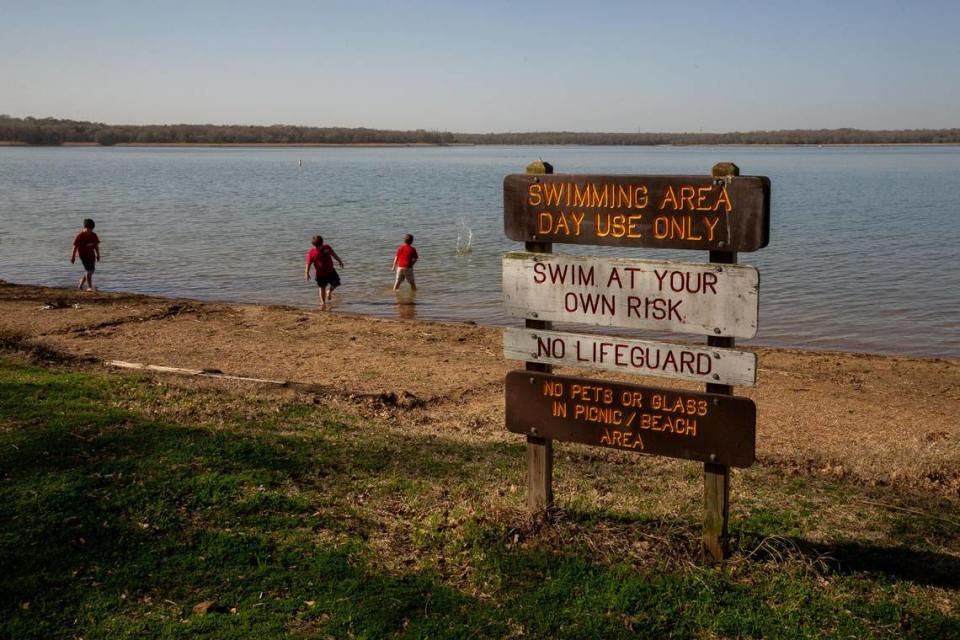
For the first half of 2023, the Texas Parks and Wildlife Department tried, and failed, to purchase or retain access to the park land.
In early June, Dallas-based developer Todd Interests closed a $103 million deal on the 5,000-acre property, which includes the former park as well as the lake. The developer planned to transform the rural landscape into an exclusive gated neighborhood, complete with a clubhouse and a golf course.
About a week later, the state Parks and Wildlife Commission voted to acquire the property another way: eminent domain. The decision incensed Todd Interests founder Shawn Todd, who told reporters that the state’s plan was “reckless” and that he was “legally prepared for battle.”
There wasn’t really any legal way to stop the state, eminent domain experts have said. The Parks and Wildlife Department had a clear-cut legal case for seizing the land, and there was an obvious public benefit in keeping the land accessible as a park.
“There’s no question that TPWD has authority to condemn that park,” said Matt Harriger, an eminent domain attorney at Brady & Hamilton who represents landowners. “There’s no way to get them to back down legally.”
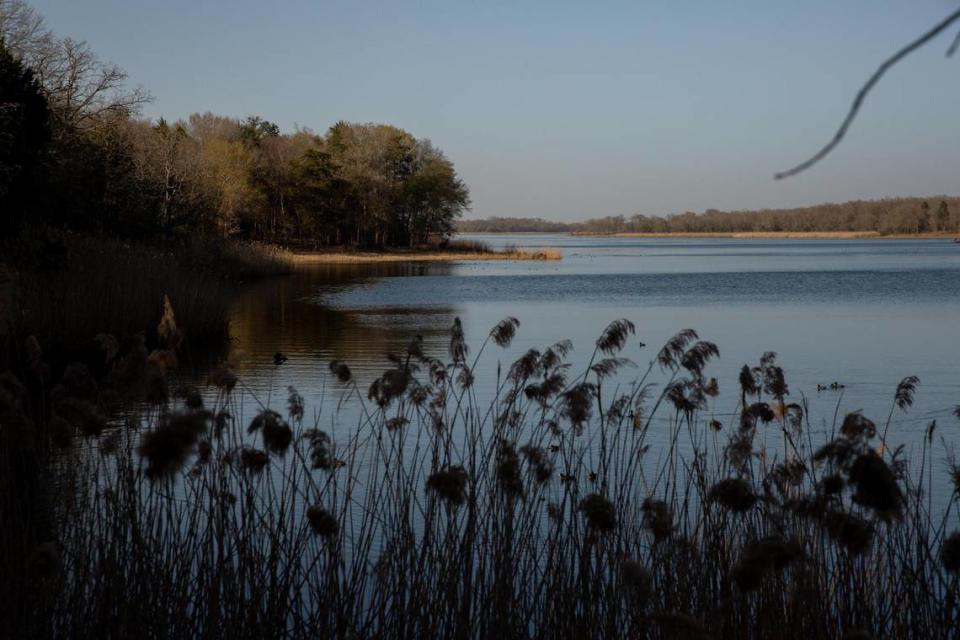
But there was another avenue open to Todd — finding a way to drive up the official value of the land. Even under eminent domain, the state is still required to pay a fair value for land it takes.
As the case moved along, Todd remained true to his vow, holding press conferences and railing against what he described as state overreach and “Gestapo-like tactics.” And in mid-November, a panel ruled that the property was worth a whopping $418.3 million — more than four-times what Todd had paid earlier in the year, and about five-times what the state had wanted to pay.
Last week, the state Parks and Wildlife Department dropped its eminent domain case, officially throwing in the towel and leaving Todd Interests to develop the land.
Todd and his firm did not respond to numerous requests for comment for this story. The Texas Parks and Wildlife Department declined an interview request but provided a short statement on the decision to walk away.
The Fairfield Lake case was an “exceedingly rare” outcome for an eminent domain matter, Harriger said.
So how did a private developer buck the norm and beat out the state of Texas? Four eminent domain experts said it was a combination of unusual factors, and that it’s among the most unique eminent domain cases in Texas’ history.
The public relations campaign
In late June, Patrick Todd made a trek to rural Texas.
Patrick Todd, the elder Todd’s son and business partner, visited Freestone County Fair Livestock Show Sale and made the winning bid on this year’s Grand Champion Steer. He paid $34,000, which was $14,000 more than the top bidder paid for last year’s steer.
It had been two weeks since the Texas Parks and Wildlife Commission voted to use eminent domain to seize the firm’s property.
The $34,000 that Patrick Todd dropped on the steer was a good chunk of change. All on its own, it amounted to nearly 5% of the show’s total sales, according to numbers reported by the Freestone County Times. But it’s pennies compared to what Todd Interests had on the line with its planned Freestone Club development, and it grabbed attention almost immediately.
An administrator of a Facebook group called Save Fairfield Lake State Park posted about the steer purchase, setting off a flood of comments.
Some called the move an obvious grab for publicity and good will. “Okay, NOW they’re ramping up the PR campaign,” one frequent commenter wrote. “No ulterior motive here, right?” another Facebook user wrote.
But others found the purchase compelling, and saw the move as a signal that the firm would continue to invest in and bring folks into the rural county.
The family of the child who raised the steer posted, too, saying that they were “forever grateful” to the Todd family for their bid.
Buying that steer was, according to A&M professor Morriss, a “genius move.”
It was one of many ways that Todd Interests courted public opinion on the Fairfield Lake case.
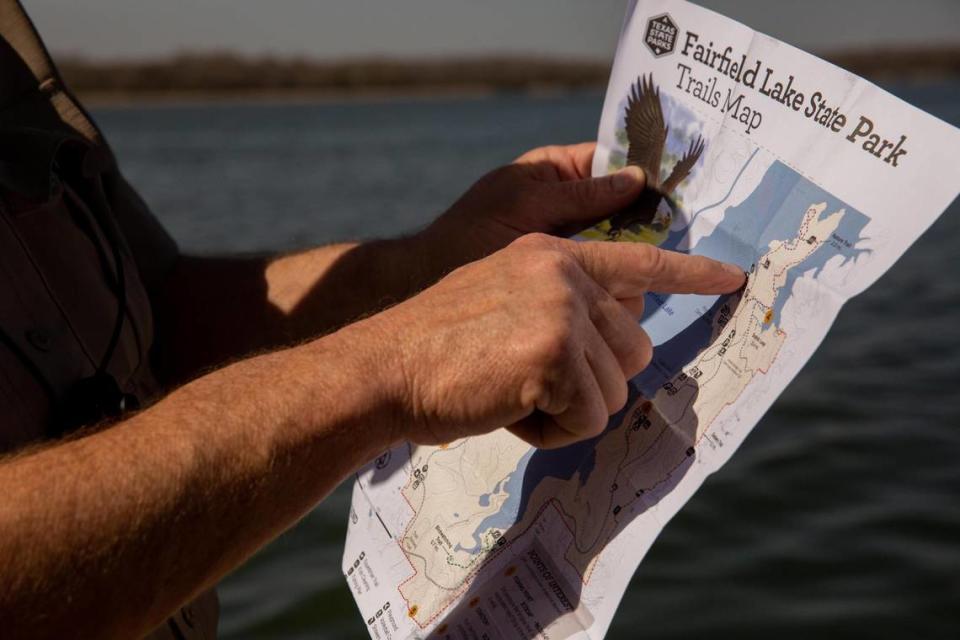
Unlike early in the year, when Todd remained mum about his development plans, by summer he was holding press conferences at his office in Dallas and on the steps of the Freestone County courthouse. He gave interviews and went on local radio shows. He filed public information requests to gain access to officials’ conversations about his property. A public relations firm working for Todd Interests peppered reporters with updates and press releases.
“I think that’s one of the really interesting things is that the landowner not only had the resources and ran a good campaign, but actually learned as they were going and pivoted to run a campaign,” Morriss said.
Most people fighting eminent domain neither have the money nor the platform to do what Todd Interests did.
“If you’re pitting the state of Texas against some rancher or suburban homeowner or something, it doesn’t matter how many press conferences they hold, not many people are going to show up,” Morriss said. “But this developer had the resources to run a PR campaign.”
That made Todd Interests a more even match for the state.
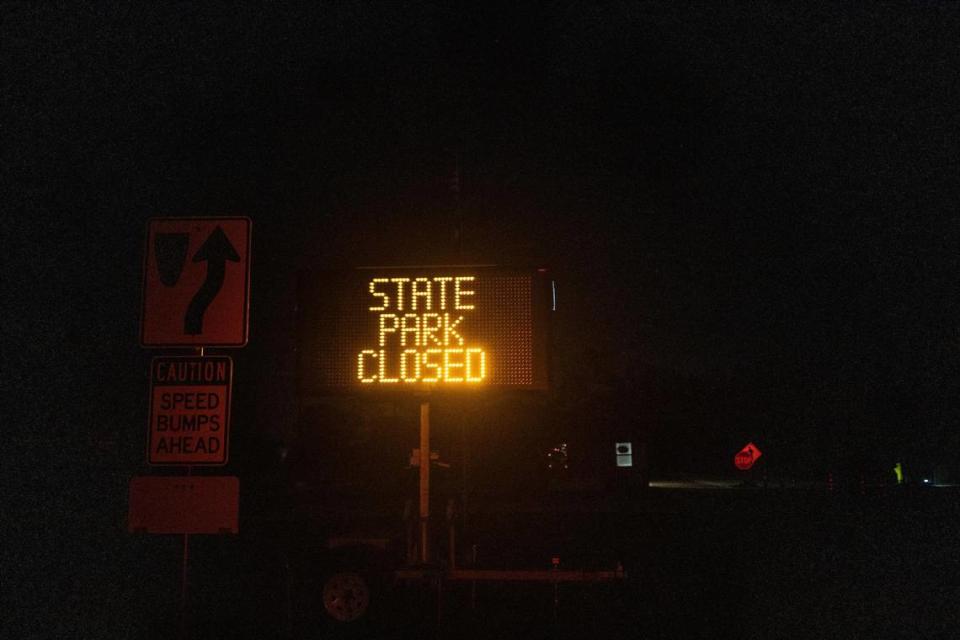
In other situations, a public campaign might not have much effect.
But unlike the majority of eminent domain cases — where a condemnor is building a pipeline or highway, and needs a set of particular parcels for that project — in the Fairfield Lake case, the Parks and Wildlife Department wanted just one parcel of land.
“The idea that there’s a singular piece of property that the government needs and that it wants to take is unusual,” said Christopher Clough, a managing partner at the eminent domain law firm Barron, Adler, Clough & Oddo. “It allows the government to basically see what it’s going to cost them and if it costs too much, they can walk away from it … with minimal ramifications.”
That was a key difference for Todd Interests, because it meant that the developer had an opening to force the state’s hand, if only the firm could place the price of the property out of the state’s reach.
The $418 million valuation
By mid-November, everyone in the Fairfield Lake area knew about Todd’s battle with the state.
That’s when a panel of three Freestone County landowners convened to hear arguments from both sides and to make a ruling on how much the 5,000 acres was worth. Eminent domain law requires the condemning agency to pay a fair value, and the panel was tasked with deciding that amount.
Normally, such a panel wouldn’t know a thing about the property it was evaluating until the day of the hearing. But the park property had been the talk of the county — and across much of the state — for months.
“I think it’s a safe assumption that the three commissioners that served on the panel had some prior knowledge of what was going on beforehand,” said Matt Harriger, an eminent domain attorney who represents landowners at the Texas-based firm Brady & Hamilton.
That may have impacted the panel’s decision-making. But Todd Interests’ lawyers also had to have made a “very persuasive case,” Morriss said.
State lawyers argued that the property was worth $85 million. The developer’s lawyers argued for $475 million, based on an appraisal of the lake’s water value and on Todd Interests plans for the property, the Dallas Morning News reported.
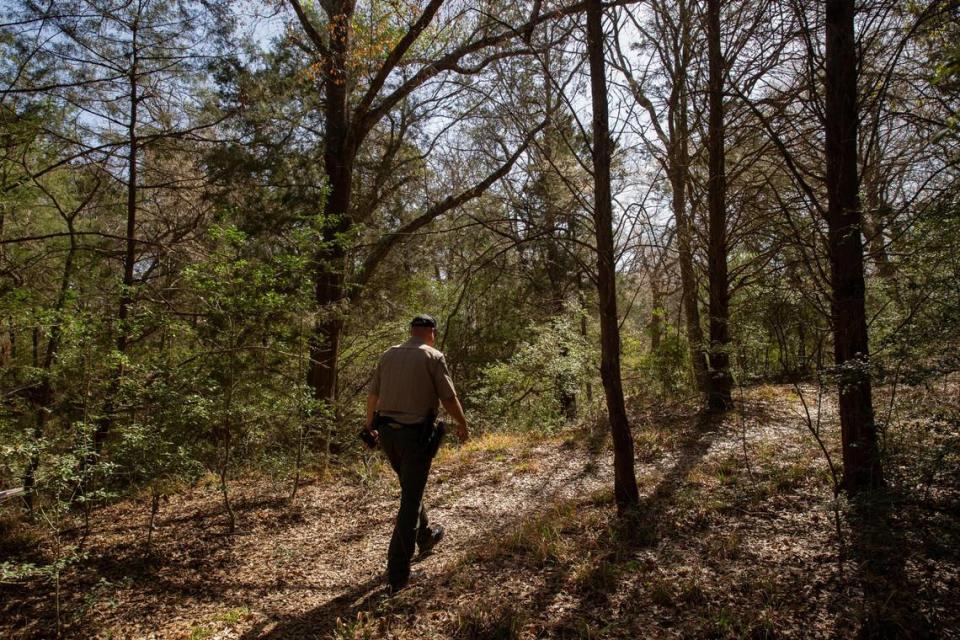
Typically, a recent sales price is a solid starting point for determining fair market value.
But although Todd Interests had paid $103 million for the land less than six months earlier, the firm argued that its vision for the property made it worth much. The Todds made that argument without the testimony of a property appraiser, according to Dallas Morning News coverage, which eminent domain experts say is rare.
And the panel, it seems, found the argument compelling.
After two days of arguments, the panel ruled that the property was worth $418.3 million.
It’s nearly unheard of for an eminent domain valuation to reach anywhere near that number, said Clough, the eminent domain lawyer. He described the amount as “the largest financial taking that I’m aware of in Texas history.”
It was a huge win for Todd Interests — and a massive blow to the state.
The state backs down
After the valuation, the state was left with a few options.
Parks and Wildlife could pay the court the $418.3 million valuation, take immediate possession of the property, and either let the case end there or file an appeal to get the valuation reduced. Or, the state could file an appeal without paying the $418.3 million and therefore without taking possession of the property. And lastly, the state could drop the eminent domain proceeding and walk away.
Realistically, the Parks and Wildlife Department didn’t have the budget to hand over $400 million for a single piece of property. State Sen. Charles Perry — a Lubbock Republican and the chair of the Senate Committee on Water, Agriculture, and Rural Affairs — told the Star-Telegram at the time that the hefty price tag was “greater than is available today,” even with the recently approved $1 billion Centennial Parks Conservation Fund.
That left the state with two options. A couple of the eminent domain experts said they would’ve expected the state to at least attempt an appeal.
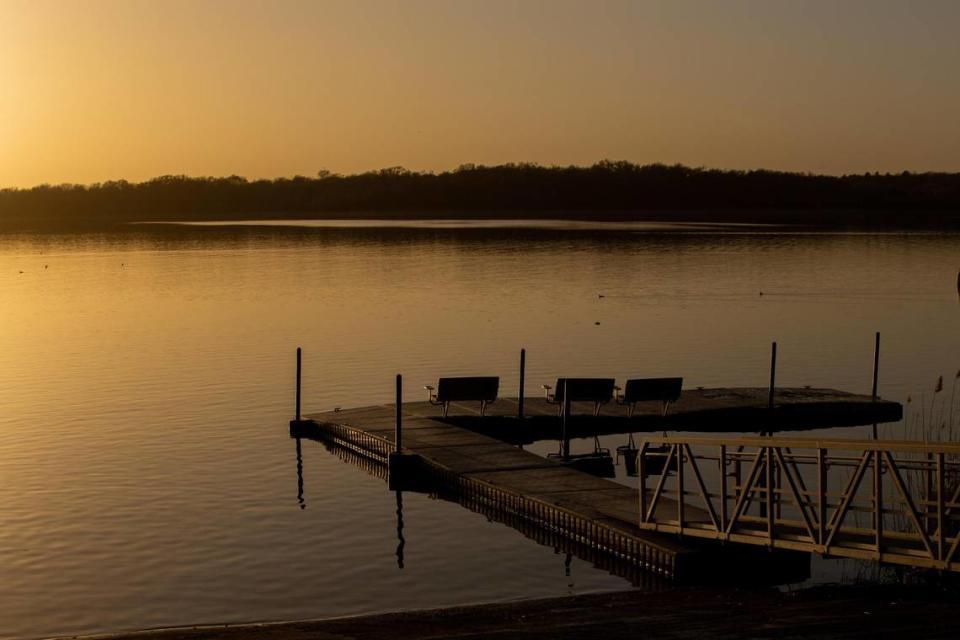
But, in the face of a lengthy appeal timeline, that would’ve meant that Todd Interests could have continued developing the property. And that could’ve increased the value of the land, Clough said, while also pushing the property further away from park-readiness.
Morris, the A&M professor, said the state would’ve had to win big at the appeal in order to get the valuation back into an attainable range. Even cutting the panel’s valuation in half — which would’ve been, legally, a huge win — still would’ve left the state paying $200 million. And it’s unlikely the state would’ve paid that much for one park.
So, instead, the Parks and Wildlife Department decided to cut its losses.
“They would have had to knock it out of the park to get it down to $100 million,” Morriss said. “So credit goes to the state for recognizing when it’s a losing battle.”
The Texas Parks and Wildlife Department declined an interview request about the decision to walk away from the eminent domain proceedings. But spokesperson Cory Chandler provided a statement on behalf of the department.
“Given the choices in front of us, while knowing the department might not take possession of the property for several years, we felt that looking toward new opportunities provided the fastest and most judicious pathway to opening lands for public use,” the statement said.
Not quite David and Goliath
When Todd announced that his firm had won, he drew parallels between Todd Interests and rural residents who might face eminent domain.
“This monumental and historic victory belongs to the ranchers, farmers, landowners, and people of Freestone County,” Todd said in a written statement provided to some media outlets, adding that the state’s actions were in contradiction to “the inherent rights of all Texas property owners.”
The eminent domain experts told the Star-Telegram that there is some possibility that Todd Interests’ win will inspire other landowners to push back more against a condemning agency. And it might, also, push agencies to be a little more cautious before taking land for public parks or similar uses.
But the average Texan — without Todd Interests’ resources and with a condemnor that has to acquire particular properties for a larger project — wouldn’t be able to replicate the developer’s playbook or victory.
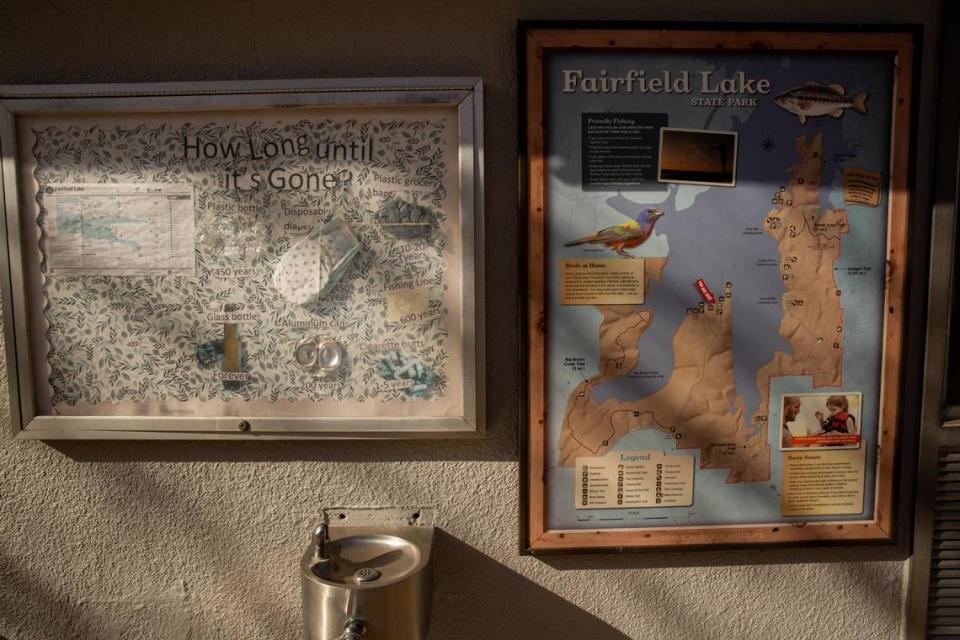
“From the landowners’ perspective, they ask all the time, ‘Is there any way to stop this from happening?’” said Roy Brandys, a partner at the eminent domain firm Barron, Adler, Clough & Oddo. “And unfortunately … most times you have to tell them, ‘There isn’t really a whole lot you can do to actually stop an entity like TxDot or somebody from coming in and taking your land.’”
Todd Interests’ win may not usher in a new era for landowners fighting eminent domain. But the legal experts say the firm pulled off quite a feat in beating back the state.
“It wasn’t David that beat Goliath,” Morriss said. “But it was a slightly smaller Goliath beats a slightly larger Goliath.”
And that, he said, is still a pretty compelling story.

